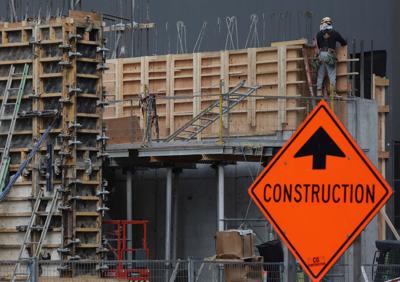The big number
2%
the percentage of noise-related service requests made to ╔ź╔ź└▓ÔÇÖs 311 service that led to charges for making too much noise
The city of ╔ź╔ź└▓ has no shortage of rules and regulations. According to with information that dates all the way back to 1844, ╔ź╔ź└▓ has 164,323 bylaws on the books, with more always coming: ╔ź╔ź└▓ city council
What there is a real shortage of, though, is an effective strategy to enforce many of those bylaws.
Whether itÔÇÖs Airbnb regulations that are being routinely and blatantly flouted, traffic and parking laws that many drivers seem to treat as optional, or public health rules during the pandemic that people could seemingly break with no consequences, this city has had some real trouble in recent years with enforcement.
For another example, look at a new report on changes and additions to the cityÔÇÖs bylaws related to noise. Bureaucrats at city hall have spent years fine-tuning these rules, coming up with precise definitions about the types of noise permitted and prescribing specific decibel limits that apply at various times of the day for things like construction noise, loud music and obnoxious vehicles.
But despite the detail, the new report reads to me like a lot of sound and fury signifying nothing.
The big problem is, once again, that thereÔÇÖs no coherent strategy to enforce most of these rules about noisemaking. , which will be considered by the economic and community development committee on Thursday and by city council early in February, thereÔÇÖs no immediate plan to add any more bylaw enforcement officers. Instead, the report suggests sticking with the current ÔÇťNoise TeamÔÇŁ made up of just 28 staffers, including a manager and three supervisors.
With the city receiving around 19,000 noise-related service requests to 311 annually, that means every member of the Noise Team would have to handle about 700 requests over the course of the year. ItÔÇÖs a level of efficiency the team has never shown any ability to reach.
While the report notes, rather cheerfully, that ÔÇťthe noise teamÔÇÖs average response time has been improving,ÔÇŁ suggests that some of that improvement may be because of the way the city has been classifying noise complaints. Over the last four years, just 150 of more than 50,000 total noise-related service requests to 311 have been designated ÔÇťpriority level oneÔÇŁ ÔÇö a category that requires a response time from bylaw officers of 24 hours or less.
And that number is on the decline. After 83 priority level one service requests were recorded in 2022 ÔÇö with a dismal average response time of 4.43 days ÔÇö the number in 2023, through the end of November, dropped to just one highest-priority request. Seriously: just one. As in the loneliest number. It took three days for the team to respond, meaning they achieved a zero per cent success rate on their response time targets for their highest-priority requests. Not great.
One glaring issue is that . It requires a situation where the noise is┬á ÔÇťcontinual, persistent and of unreasonable volume impacting neighbourhoods.ÔÇŁ In other words, if itÔÇÖs just bothering a few houses or buildings, or the noise isnÔÇÖt constant, it doesnÔÇÖt qualify.
As a result, most complaints are classified as priority level two ÔÇö which ÔÇťincludes matters that are recurring, not in compliance with bylaw, and impact multiple peopleÔÇŁ ÔÇö and gives the noise team up to five days to respond.
As youÔÇÖd expect, this system does not lead to a lot of real consequences, because a lot of noisy things donÔÇÖt just stay noisy for five days straight. In 2022, 19,467 noise-related calls to 311 led to just 294 charges ÔÇö a rate of about two per cent.
Part of fixing this starts with money. On Wednesday, Mayor Olivia Chow will launch the consultation period for her first budget. This yearÔÇÖs budget deliberations must take a real look at whether municipal departments have the staffing budgets and resources they need to do their jobs ÔÇö especially when it comes to enforcing the rules in important areas.
But IÔÇÖd also urge Chow and city councillors to really consider the inherent risk in continuing to pass bylaws without a credible plan for enforcing them. A regulation that canÔÇÖt be enforced isnÔÇÖt worth the paper itÔÇÖs printed on, and as those kinds of meaningless regulations pile up the municipal government starts to send a clear message to people that city hallÔÇÖs rules donÔÇÖt matter.
Error! Sorry, there was an error processing your request.
There was a problem with the recaptcha. Please try again.
You may unsubscribe at any time. By signing up, you agree to our and . This site is protected by reCAPTCHA and the Google and apply.
Want more of the latest from us? Sign up for more at our newsletter page.


























To join the conversation set a first and last name in your user profile.
Sign in or register for free to join the Conversation